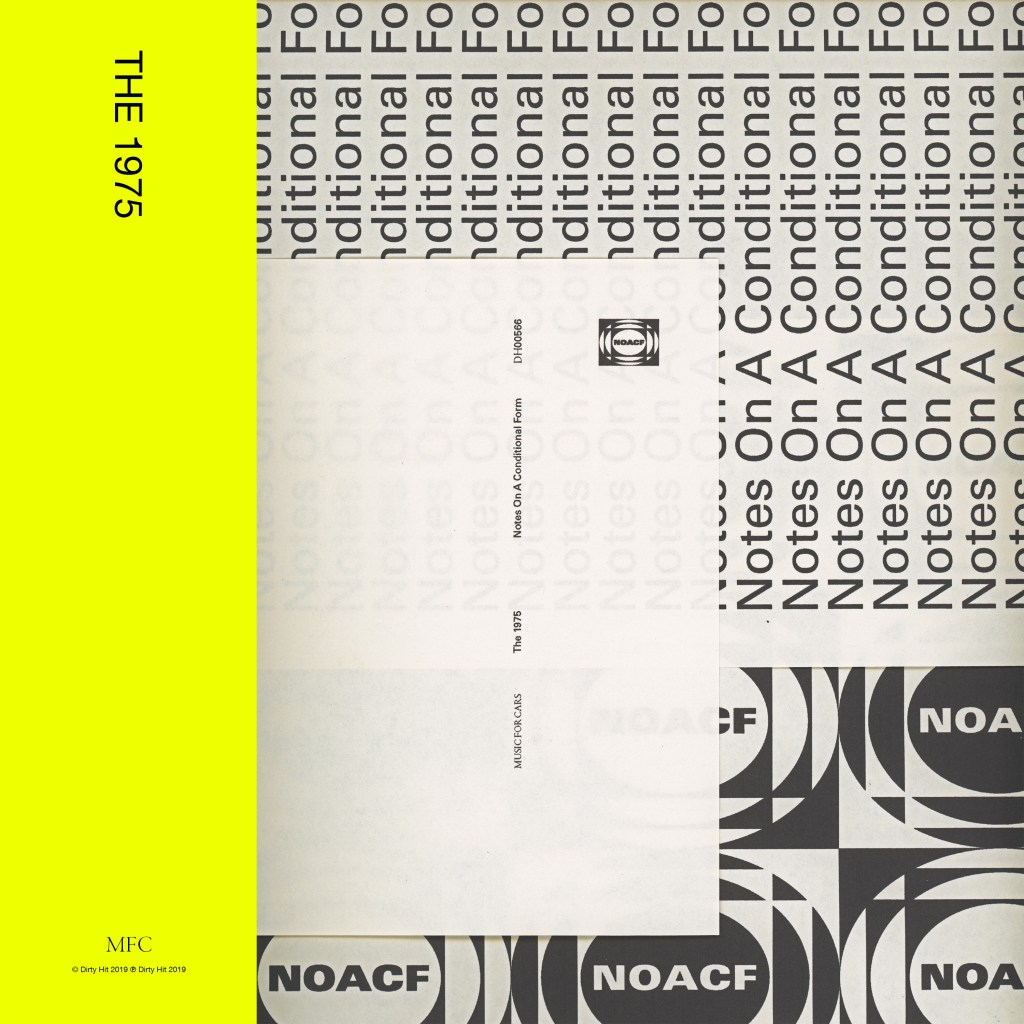When reflecting on the self-awareness of a group like The 1975, you needn’t look further than the video for their 2016 single ‘The Sound’. What begins as an upmarket performance video quickly turns into a running commentary on the band itself, as snide remarks about them flash up in bold text. “Totally lacking the wow factor,” one says. “There’s no danger in this music at all,” says another. One even goes straight for the jugular of leader Matt Healy. “This band thinks it has a charismatic singer,” it reads. “They are mistaken.”
The 1975 read everything you ever said about them – and it certainly was not lost on them when the dialogue surrounding them dramatically changed circa 2018. The same folks that had lobbed such quips at them were now rolling out the red carpet for the band of the year. A Brief Inquiry Into Online Relationships dominated that year’s discourse – an impressive enough feat given its first single was in June and the album came out with just over a month before year’s end.
The Manchester band bathed in their moment of cultural zeitgeist, promising a follow-up as early as mid-2019 but milking anticipation for another full year with a half-dozen singles breadcrumbing their trail. It’s a borderline Machiavellian tactic in the “where-the-album-at” era – but, to their credit, The 1975 made it work. They transformed Notes on a Conditional Form from the most-anticipated album of 2019 to the most-anticipated album of 2020.
The fact Notes is considered of the same “era” and a companion to Inquiry makes lots of sense – especially when you consider both LPs were preceded by career-best runs of singles. ‘People’ is action-packed and pissed-off; the sound of Refused and The Hives meeting up at a climate-change protest. ‘If You’re Too Shy (Let Me Know)’, meanwhile, is among the most exquisite love-letters to 80s pop the band has ever written – a considerable effort when you consider previous exercises like ‘Love Me’, ‘Somebody Else’ and ‘She’s American’. Elsewhere, the group’s developing affinity for loops, chopped beats and post-dubstep production unfurl on ‘Frail State of Mind’, essentially serving as the emotional flipside to 2018’s playful ‘TOOTIMETOOTIMETOOTIME’.
Even when the band strip away its bells and whistles, they’re still able to connect on a grander scale. The acoustic balladry of album centrepiece ‘Jesus Christ 2005 God Bless America’ is nothing short of exceptional. There, Healy finds a vulnerable equal in the form of emo-revival heroine Phoebe Bridgers. Their plaintive exchange offers up a true moment of clarity, turning introspection into unadulterated resonance.
Upon listening to Notes in full, the flaws within the band’s gameplan, unfortunately, begin to rear their ugly heads. The way that the singles have rolled out for this record is the musical equivalent of releasing an extended trailer for an upcoming blockbuster. Exciting as it all may seem, by the time you get to the feature presentation practically all of the best moments have been spoilt. You know exactly what’s going to happen, right down to the second, because they already showed you. While the songs themselves remain top-tier, the shine certainly wears off when placed in the LP context.
So, what of the album’s new discoveries? Truth be told, it’s a very mixed bag. ‘Then Because She Goes’ is a glistening slice of ’90s indie-rock, pairing well with previous single ‘Me & You Together Song’. Its lush chord progression, washed-out reverb and layered vocals make for a blissful listen – so the fact it goes for a shorter amount of time than some of the album’s instrumental interludes is truly puzzling. ‘Roadkill’, at the other end of the spectrum, is faceless folk-rock – it comes off like a YouTuber covering The Band as a Patreon request, having no connection to the song whatsoever.
The album’s constant push and pull between each of the band’s stylistic endeavours, too, means that you’re never able to keep up with its pacing. By the time you’ve settled into one sound, it’s quickly abandoned in favour of another. The argument here is not that the band shouldn’t be versatile in their approach – indeed, it’s one of their key idiosyncrasies. If they intend to make it work in their favour, however, it needs to be channelled correctly.
This brings us to the elephant in the room: the inexcusable, exhaustive length of this project. At 80 minutes long, Notes is a full half-hour longer than its predecessor – and at no point during the entire LP is this decision justified. In fact, it comes across as uncharacteristically cynical. Acts such as DJ Khaled and Migos will bloat their own releases purely for the streaming numbers, but The 1975 always seemed as though they held the album format with a little more reverence than that. Why, then, does the album go from ‘People’, into a two-minute interlude, into ‘Frail State of Mind’, into another two-minute interlude? What possible justification could create that scenario?
Put it this way: This band thinks it has made a compelling start-to-finish album. They are mistaken. Had they made necessary cuts, streamlined their focus and perhaps not given away so many singles in its lead-up, perhaps this build would have been ultimately justified. As it stands, however, Notes on a Conditional Form is short of the mark. The best 1975 is somewhere in there, but the version presented to us certainly isn’t it.
–












